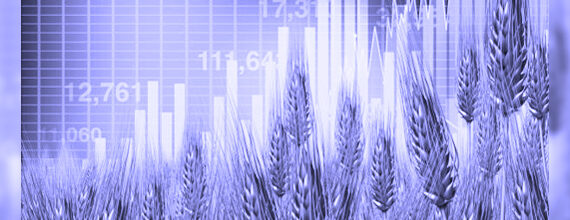Explore the advantages of investing in commodities futures with our comprehensive guide. Learn about contract types, associated risks, and profit-maximizing strategies.
Commodities futures are financial instruments that allow investors to bet on the future price movements of various raw materials and natural resources. These futures contracts are traded on exchanges, with the most popular being the Chicago Mercantile Exchange (CME), where contracts are available for commodities such as oil, gold, wheat, and more. Futures contracts are a popular way for investors to hedge against price fluctuations or to speculate on future price movements.
What are Commodities Futures?
Commodities futures refer to contractual agreements between two parties to either buy or sell a particular commodity at a predetermined price on a future date. In this agreement, the buyer commits to purchasing the commodity on a specific date in the future, while the seller commits to delivering the commodity on that date.
For example, let’s say that a farmer wants to sell his wheat crop, but he won’t harvest it for another six months. He can enter into a futures contract with a buyer, agreeing to sell a certain quantity of wheat at a specific price in six months’ time. This way, he can lock in a price for his wheat and avoid the risk of falling prices in the future.
Why Trade Commodities Futures?
There are several reasons why investors trade commodities futures. The first is for hedging purposes. If you’re a producer of a commodity, you may want to protect yourself against falling prices by selling futures contracts. Alternatively, if you’re a consumer of a commodity, you may want to buy futures contracts to protect yourself against rising prices.
Another reason to trade commodities futures is for speculation. Investors may believe that a particular commodity is going to increase in price in the future, and they can profit by buying futures contracts. Similarly, if an investor believes that a commodity will decrease in price, they can profit by selling futures contracts.
Commodities Futures Trading Strategies
There are several trading strategies that investors can use when trading commodities futures. One popular strategy is called trend following. This involves analyzing historical price movements to identify trends and then buying or selling futures contracts based on those trends.
Another strategy is called mean reversion. This involves identifying when a commodity is overvalued or undervalued relative to its historical average price and then buying or selling futures contracts accordingly.
Finally, investors can use a spread trading strategy, where they simultaneously buy and sell futures contracts for different delivery dates or different commodities. This can help them hedge against price fluctuations or take advantage of price discrepancies between different contracts.
Risks of Trading Commodities Futures
While trading commodities futures can be profitable, it is also risky. The prices of commodities can be volatile, and there are a number of factors that can influence their prices, such as geopolitical events, weather conditions, and supply and demand factors.
Furthermore, futures contracts are leveraged, meaning that investors can control a large amount of a commodity with a relatively small amount of capital. While this can amplify profits, it can also amplify losses.
Conclusion
Commodities futures are a popular way for investors to hedge against price fluctuations or to speculate on future price movements. There are a variety of strategies that investors can use to trade commodities futures, but it is important to be aware of the risks involved. By understanding the mechanics of futures contracts and the factors that can influence commodity prices, investors can make informed decisions and potentially profit from trading commodities futures.











